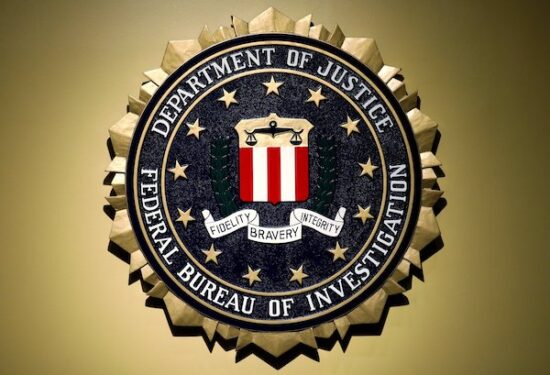
PROSPECT HEIGHTS — While it remains unclear if, or how much, the FBI followed through on an internal proposal to investigate traditionalist Catholics’ association with extremists, the proposal itself somewhat mirrors tactics the New York Police Department used to investigate Muslim communities after 9/11.
Earlier this year, a leaked internal memo out of the FBI’s Richmond, Virginia, field office suggested that an increasing number of racially or ethnically motivated violent extremists have an interest in Catholic traditionalism and that the overlap is expected to grow over the next 12-24 months ahead of the next presidential election.
Therefore, the document suggested that “the current trend of RMVE [racially or ethnically motivated violent extremists] interest in RTC [radical-traditionalist Catholic] ideology provides new opportunities to mitigate the RMVE threat through outreach to traditionalist Catholic parishes and the development of sources with the placement and access to reporting on RMVEs seeking to use RTC social media sites or places of worship as facilitation platforms to promote violence.”
Cardinal Timothy Dolan of New York, the chairman of the U.S. Conference of Catholic Bishops’ Committee for Religious Liberty, condemned both extremism and the FBI’s actions after the leaked memo was publicized in February.
“Let me first be clear: anyone who espouses racism or promotes violence is rejecting Catholic teaching on the inherent dignity of each and every person,” Cardinal Dolan said. “The USCCB roundly condemns such extremism and fully supports the work of law enforcement officials to keep our communities safe.
“The leaked memorandum was nonetheless troubling and offensive in several respects — such as in its religious profiling and reliance on dubious sourcing — and I am glad it has been rescinded,” Cardinal Dolan continued. “We encourage federal law enforcement authorities to take appropriate measures to ensure the problematic aspects of the memo do not recur in any of their agencies’ work going forward.”
On April 10, FBI Director Christopher Wray was subpoenaed by the Republican-led House Judiciary Committee to “compel full cooperation” with the committee’s investigation into the contents of the leaked document and any anti-Catholic actions.
A spokesperson for the USCCB declined to comment on the subpoena.
The tactics suggested in the leaked memo are similar to those the NYPD employed to investigate Muslim communities in the early 2000s.
First known as the Demographics Unit and later the Zone Assessment Unit, from 2003 through mid-April 2014, the NYPD dispatched plainclothes detectives to gather intelligence on Muslim communities, with the goal of identifying locations where would-be terrorists could blend into society.
Through the program, mosques were designated as suspected “terrorism enterprises,” which led to actions from detectives like collecting the license plate numbers of worshippers, videotaping worshippers coming and going, and recording sermons.
Beyond infiltrating the places of worship, the detectives spent time in Muslim neighborhoods eavesdropping on conversations and collecting data on where people spent their time. They also infiltrated Muslim student groups on college campuses.
The program was ultimately shut down when William J. Bratton took over as NYPD Commissioner. At the time, NYPD chief spokesperson Stephen Davis said the unit’s detectives had been reassigned and that the department would use different methods to gather information.
The program was also the subject of three lawsuits. One was dismissed. The other two were settled, and as part of those settlements, the NYPD promised not to conduct surveillance based on a person’s religion.
At the time, Linda Sarsour of the Arab American Association of New York was quoted in The New York Times saying the program created “psychological warfare in our community. … It completely messed with the psyche of the community.”
Like Sarsour, Yassir Fazaga, an imam from California who, in 2006, with two others, sued the FBI over its surveillance of mosques in southern California in the years following 9/11, warned of the harm surveillance can have.
Fazaga’s lawsuit ultimately went to the Supreme Court, which sided with the FBI on the basis that the agency’s actions were justified under the “state secrets privilege.” The privilege sometimes requires the dismissal of lawsuits that would disclose information that could harm national security.
“The potential for abuse is just so unbelievably great, Fazaga told Al Jazeera in 2021. “Imagine putting recording devices in the confessional in a Catholic church. … People trust their religious leaders, people come and share their most intimate details with us.”
The tactics the FBI used against Muslims in southern California are similar to those the House Judiciary Committee alleges the agency employed against Catholics in Richmond.
In a letter to Wray, Rep. Jim Jordan of Ohio, the House Judiciary Committee chairman, said the “limited” information the FBI has provided the committee on the matter shows that the FBI relied upon at least one undercover agent to produce its analysis on investigating traditionalist Catholics’ association with extremists.
Jordan added that the information shows the FBI proposed that its agents engage in outreach to Catholic parishes to develop sources among the clergy and church leadership to “inform on Americans practicing their faith.
“This shocking information reinforces our need for all responsive documents, and the Committee is issuing a subpoena to you to compel your full cooperation,” Jordan said, adding that the alleged behavior violates Catholics’ First Amendment rights.
“Americans attend church to worship and congregate for their spiritual betterment,” Jordan said. “They must be free to exercise their first fundamental First Amendment rights.”
Neither Wray nor the FBI has commented on the subpoena. However, in March 8 testimony before the Senate Select Committee on Intelligence, Wray said he was “aghast” when he learned about the leaked memo and that the memo did not meet the FBI’s standards.
“We do not conduct investigations based on religious affiliation or practices, full stop,” Wray said. “We have also now ordered our inspection division to take a look at how this happened and try to figure out how we can make sure something like this doesn’t happen again.”
